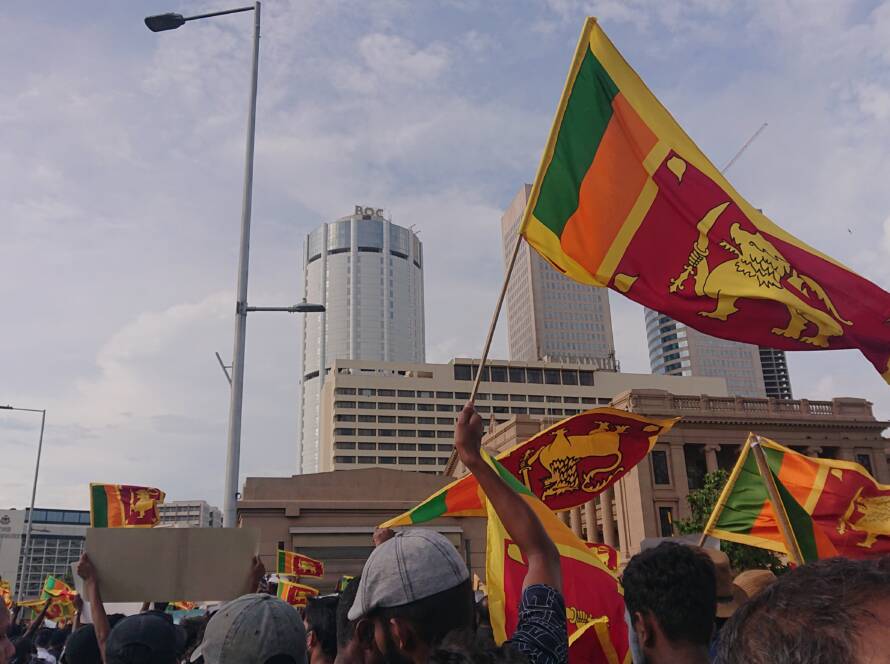By Aakil Riyaz
Jimmy Carter Jr., the 39th President of the US, was born on October 1, 1924. He stands out in American history as the longest-living former president.
Carter’s accession to the Oval Office in 1977 came after a decisive victory over Gerald Ford, which marked a rupture in US politics. Carter’s presidency was marked by a blend of groundbreaking achievements and deeply harrowing setbacks. A Democrat from rural Georgia, his tenure was characterized by strained relationships with Congress, limited political alliances, and a series of unprecedented global crises. These factors combined to produce a presidency that was both turbulent and transformative.
Carter’s political career began as a response to the tumultuous era of the 1960s, with his moderate stance appealing to voters who sought a leader untainted by the scandals of Watergate and Washington. However, his lack of national political experience soon became evident. His presidency faced significant challenges domestically, including economic stagnation, rising inflation, and an energy crisis.
Compounding all this was his inability to forge strong relationships with Congress, a failure illustrated by an early and seemingly minor conflict over a water projects bill. This dispute set the tone for a presidency in which Carter struggled to unite his party or build bipartisan coalitions, ultimately undermining his legislative efforts.
On the international stage, Carter sought, in the view of his supporters, to project American leadership and moral clarity. His presidency was defined by both remarkable diplomatic achievements and dramatic failures.
One of his most celebrated accomplishments was the Camp David Accords, a historic peace agreement brokered between Egypt and Israel in 1978. After 13 days of intensive negotiations, Carter succeeded in bringing Egyptian President Anwar Sadat and Israeli Prime Minister Menachem Begin to an agreement. The accords ended decades of hostility between the two nations and established a framework for peaceful relations that, though much marred today, has become a benchmark for peace in the region.
However, the broader context of Carter’s Middle East policy revealed its limitations. While the Camp David Accords were a monumental success, Carter was unable to extend this momentum to resolve other regional conflicts, particularly those involving the Palestinian people. His inability to address the broader Arab-Israeli conflict highlighted the challenges of achieving comprehensive peace in the Middle East.
Furthermore, the Iranian Revolution of 1979 and the subsequent Iran Hostage Crisis overshadowed his administration’s diplomatic successes. The crisis, in which 52 American diplomats and citizens were held hostage in Tehran for 444 days, became a symbol of Carter’s perceived weakness and inability to manage international crises. The failed rescue mission, Operation Eagle Claw, ended in tragedy and further eroded public confidence in his leadership.
Another cornerstone of Carter’s foreign policy was the normalization of US-China relations. Building upon the groundwork laid by Presidents Nixon and Ford, Carter formally recognized the People’s Republic of China in 1979, marking a pivotal shift in Cold War diplomacy. This decision, while significant in fostering closer Sino-American ties, came at the cost of severing official relations with Taiwan.
The move sparked domestic criticism and created lasting tensions within the US-Taiwan relationship. Despite these challenges, Carter’s efforts to strengthen Sino-American relations proved to be a strategic milestone during a critical phase of the Cold War, one which Henry Kissinger frequently commented positively on later.
Carter’s response to the Soviet invasion of Afghanistan in 1979 was another defining aspect of his foreign policy – perhaps the most definitive. The invasion prompted Carter to adopt a more assertive stance in the Cold War.
In retaliation, he announced the boycott of the 1980 Moscow Olympics, a decision that divided public opinion and ultimately proved ineffective in deterring Soviet actions. The boycott, which denied American athletes the opportunity to compete, underscored the challenges of using symbolic gestures in the face of geopolitical realities.
Simultaneously, Carter authorized the arming of Afghan Mujahideen fighters through intermediaries like Pakistan. While this strategy successfully countered Soviet influence in the short term, it also contributed to long-term instability in the region, with repercussions that continue to shape global politics today.
Carter’s approach to Central and South America reflected his broader struggle to balance idealism with pragmatism. His administration’s decision to withdraw support for the Nicaraguan regime of Anastasio Somoza paved the way for the rise of the Sandinista government. While Carter’s emphasis on human rights was commendable, his policies strengthened Soviet influence in the region, as the Sandinistas aligned themselves with Moscow. This episode highlighted the complexities of Cold War geopolitics, where efforts to promote democratic values often clashed with strategic imperatives.
Domestically, Carter faced a series of economic challenges that tested his administration’s capacity to govern effectively. The late 1970s were marked by stagflation—a combination of high inflation, slow economic growth, and rising unemployment. The energy crisis further exacerbated these issues, with soaring oil prices leading to widespread discontent. Carter’s efforts to address these challenges included advocating for energy conservation and the development of renewable energy sources.
His establishment of the Department of Energy and emphasis on reducing dependence on foreign oil were forward-looking initiatives, but they failed to produce immediate results. Public frustration with economic stagnation and Carter’s perceived inability to provide strong leadership contributed to his declining popularity.
Despite these challenges, Carter’s presidency was also marked by significant achievements in areas such as environmental protection and human rights. He expanded the national park system, strengthened clean water and air regulations, and championed the Alaska National Interest Lands Conservation Act, which protected millions of acres of wilderness.
On the global stage, his emphasis on human rights shaped US foreign policy, with Carter often prioritizing ethical considerations over strategic alliances. While this approach earned him praise in some quarters, it also drew criticism for being overly idealistic and inconsistent.
Carter’s presidency came to an end with his defeat in the 1980 election, where he lost to Ronald Reagan. The election reflected a broader shift in American politics, as voters gravitated towards Reagan’s optimistic vision of economic recovery. However, his departure from the White House marked the beginning of one of the most remarkable post-presidential careers in the US.
After leaving office, Carter dedicated himself to humanitarian work and global advocacy. Through the Carter Center, which he established in 1982, he championed causes such as disease eradication, election monitoring, and conflict resolution. His efforts to combat diseases like Guinea worm disease and river blindness have saved countless lives, while his work in promoting free and fair elections has strengthened democratic institutions around the world. Carter’s commitment to these causes earned him widespread respect and admiration, culminating in a Nobel Peace Prize in 2002.
One of Carter’s most significant contributions as a former president was his role as a mediator and peace advocate. He played a key part in brokering peace agreements and addressing conflicts in countries such as Haiti, North Korea, and Sudan. His post-presidential work also extended to his personal life, as he and his wife, Rosalynn, became prominent advocates for affordable housing through their partnership with Habitat for Humanity.
Carter’s legacy is complex. As president, he struggled to navigate the intricacies of Washington politics and address the economic and geopolitical crises of his time. Even if he did not succeed in this, he managed to reinforce the blend of pragmatism and idealism that has become a hallmark of the presidential system in the US. One can argue that his moral convictions left an enduring impact
Certainly, his efforts to promote peace, human rights, and environmental sustainability continue to inspire future generations. On broader issues like Palestine, he exuded a much more progressive stance than his successors ever did, or ever have. No other US president has been as critical of Israeli activities in the West Bank and Gaza as he did.
Perhaps it goes without saying that Carter’s major contributions came after he left office – a critique of as much as a comment on the limitations of the US presidency. Yet it also goes without saying that his unwavering dedication to humanitarian causes and his ability to effect positive change on a global scale redefined what it means to be a former US president. It is that legacy which will define Carter’s life for decades to come.
Aakil Riyaz is an undergraduate at the University of London, reading for a BSc in Politics and International Relations. Aside from his studies he is an enthusiastic researcher and an avid Rotaractor. He can be reached at aakilriaz@gmail.com.
Factum is an Asia-Pacific focused think tank on International Relations, Tech Cooperation, Strategic Communications, and Climate Outreach accessible via www.factum.lk.
The views expressed here are the author’s own and do not necessarily reflect the organization’s.


